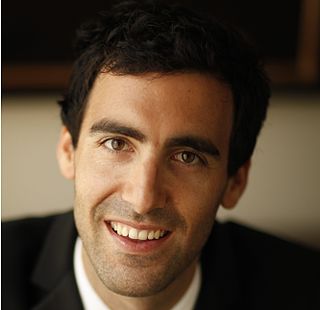A Quote by Paul Broun
There's a lot of scientific data that I found out as a scientist that actually show that this is really a young Earth.
Related Quotes
There's a lot of scientific data that I found out as a scientist that actually show that this is really a young Earth. I believe that the Earth is about 9,000 years old. I believe that it was created in six days as we know them. That's what the Bible says. And what I've come to learn is that it's the manufacturer's handbook, is what I call it. It ... teaches us how to run all our public policy.
Though the world does not change with a change of paradigm, the scientist afterward works in a different world... I am convinced that we must learn to make sense of statements that at least resemble these. What occurs during a scientific revolution is not fully reducible to a re-interpretation of individual and stable data. In the first place, the data are not unequivocally stable.
Philosophers often think all scientists must be scientific realists. If you ask a simple question like "Are electrons real?" the answer will be "Yes". But if your questions are less superficial, for example whether some well-known scientist was a good scientist. Then, they had insisted that only empirical criteria matter and that they actually did not believe in the reality of sub-atomic entities. Ask "If that turned out to be true, would you still say they were good scientists?" The answer would reveal something about how they themselves understood what it is to be a scientist.
A lot of people say I've missed out on a lot because I started acting at such a young age. What's so obvious to me is that I actually was really lucky. I gained a lot and I got a head start in what I wanted to do in life. A lot of people in their late 20s, early 30s are just beginning to figure out where they want to go.
I thought scientists were going to find out exactly how everything worked, and then make it work better. I fully expected that by the time I was twenty-one, some scientist, maybe my brother, would have taken a color photograph of God Almighty—and sold it to Popular Mechanics magazine. Scientific truth was going to make us so happy and comfortable. What actually happened when I was twenty-one was that we dropped scientific truth on Hiroshima.
I've actually found - especially doing my cabaret show - I'm connecting with people in a way I haven't connected with them. I've found that when you're open and honest, people respond to that, whatever you're being open and honest about. You could then, when you lay that as the groundwork, say, "Here I am. This is what I think. I come in peace." Then you're able to push out, to be able to talk about more things. And that's been a really heartening thing about my life, actually.
Any really good scientist is as much an artist as a scientist. All the interesting stuff is found on the edge between knowing and not knowing. I know that sounds like a meditation teacher speaking, but when you're in the laboratory, or you're theorizing about physics, you need to know what you know, but if you can't get out from under that, you won't be able to make that insightful, first-time connection that nobody else has seen before.
Scientific data are not taken for museum purposes; they are taken as a basis for doing something. If nothing is to be done with the data, then there is no use in collecting any. The ultimate purpose of taking data is to provide a basis for action or a recommendation for action. The step intermediate between the collection of data and the action is prediction.
Since I stayed in a colony where either one was an engineer or a scientist, everybody thought I would be a scientist. This was the expectation everybody had apart from my parents. Honestly, I, too, wanted to be a scientist. I think it was the way Dad would explain us scientific theories and concepts that made the subject more intriguing.

































